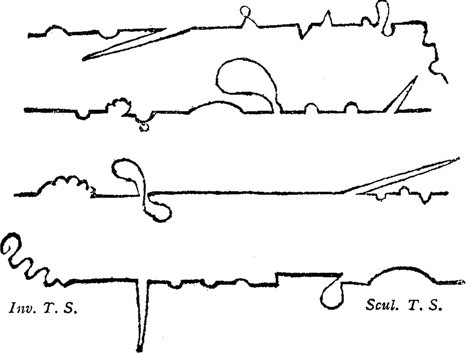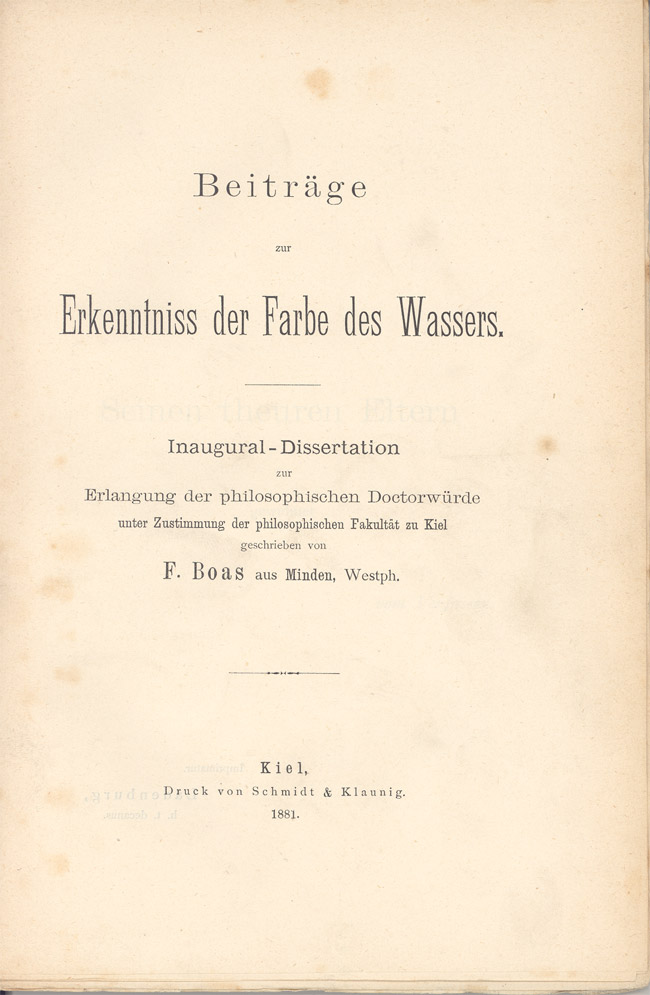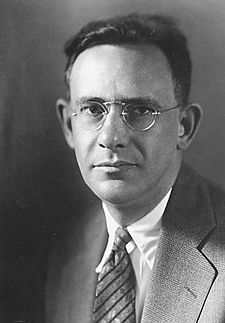|
Fabula And Syuzhet
In narratology, fabula ( rus, фабула, p=ˈfabʊlə) equates to the thematic content of a narrative and syuzhet ( rus, сюжет, p=sʲʊˈʐɛt, a=Ru-сюжет.ogg) equates to the chronological structure of the events within the narrative. Vladimir Propp and Viktor Shklovsky originated the terminology as part of the Russian Formalism movement in the early 20th century. Narratologists have described fabula as "the raw material of a story", and syuzhet as "the way a story is organized".Cobley, Paul. "Narratology." The Johns Hopkins Guide to Literary Theory and Criticism. Baltimore: Johns Hopkins University Press, Web. Since Aristotle's ''Poetics'', narrative plots have been described as having a beginning, middle, and end. Classical narratives tend to have synchronous fabula and syuzhet, but they may be treated in an asynchronous manner according to a modern or postmodern style. An asynchronous effect is often achieved in postructuralist film and novels via flashbacks ... [...More Info...] [...Related Items...] OR: [Wikipedia] [Google] [Baidu] |
Memento Timeline
{{disambiguation ...
A memento is a keepsake or souvenir of remembrance. Memento may also refer to: Film and television * ''Memento'' (film), a 2000 film directed by Christopher Nolan * "Memento" (Stargate SG-1), an episode of ''Stargate SG-1'' Music *Memento (band), a musical group * ''Memento'' (Booka Shade album) * ''Memento'' (Dead Can Dance album) * ''Memento'' (Soel album) * "Memento" (single), by Közi *Memento Materia, a record label * ''Memento'' (Böhse Onkelz album) Other * ''Memento'' (novel), by Radek John *Memento pattern, a software design pattern *Memento Project, a web archiving project See also * Memento mori (other) *Momento (other) Momento may refer to: * Momento (album), ''Momento'' (album), a 2007 bossa nova album by Bebel Gilberto * Memento (film), ''Memento'' (film), a 2000 American film written and directed by Christopher Nolan * ''El Momento'', a 2010 reggaeton/Latin p ... [...More Info...] [...Related Items...] OR: [Wikipedia] [Google] [Baidu] |
Jerome Bruner
Jerome Seymour Bruner (October 1, 1915 – June 5, 2016) was an American psychologist who made significant contributions to human cognitive psychology and cognitive learning theory in educational psychology. Bruner was a senior research fellow at the New York University School of Law. He received a BA in 1937 from Duke University and a PhD from Harvard University in 1941. He taught and did research at Harvard University, the University of Oxford, and New York University. A ''Review of General Psychology'' survey, published in 2002, ranked Bruner as the 28th most cited psychologist of the 20th century. Education and early life Bruner was born blind (due to cataracts) on October 1, 1915, in New York City, to Herman and Rose Bruner, who were Polish Jewish immigrants.Schudel, Matt (2016)Jerome S. Bruner, influential psychologist of perception, dies at 100 The Washington Post, June 7, 2016 An operation at age 2 restored his vision. He received a bachelor's of arts degree in Psyc ... [...More Info...] [...Related Items...] OR: [Wikipedia] [Google] [Baidu] |
Narratology
Narratology is the study of narrative and narrative structure and the ways that these affect human perception. It is an anglicisation of French ''narratologie'', coined by Tzvetan Todorov (''Grammaire du Décaméron'', 1969). Its theoretical lineage is traceable to Aristotle (''Poetics'') but modern narratology is agreed to have begun with the Russian Formalists, particularly Vladimir Propp (''Morphology of the Folktale'', 1928), and Mikhail Bakhtin's theories of heteroglossia, dialogism, and the chronotope first presented in ''The Dialogic Imagination'' (1975). Cognitive narratology is a more recent development that allows for a broader understanding of narrative. Rather than focus on the structure of the story, cognitive narratology asks "how humans make sense of stories" and "how humans use stories as sense-making instruments". Defining narrative Structuralist narratologists like Rimmon-Kenan define narrative fiction as "the narration of a succession of fictional eve ... [...More Info...] [...Related Items...] OR: [Wikipedia] [Google] [Baidu] |
Plot (narrative)
In a literary work, film, or other narrative, the plot is the sequence of events in which each event affects the next one through the principle of cause-and-effect. The causal events of a plot can be thought of as a series of events linked by the connector "and so". Plots can vary from the simple—such as in a traditional ballad—to forming complex interwoven structures, with each part sometimes referred to as a subplot or ''imbroglio''. Plot is similar in meaning to the term ''storyline''. In the narrative sense, the term highlights important points which have consequences within the story, according to American science fiction writer Ansen Dibell. The term ''plot'' can also serve as a verb, referring to either the writer's crafting of a plot (devising and ordering story events), or else to a character's planning of future actions in the story. The term ''plot'', however, in common usage (for example, a "movie plot") can mean a narrative summary or story synopsis, rather th ... [...More Info...] [...Related Items...] OR: [Wikipedia] [Google] [Baidu] |
Storytelling
Storytelling is the social and cultural activity of sharing stories, sometimes with improvisation, theatrics or embellishment. Every culture has its own stories or narratives, which are shared as a means of entertainment, education, cultural preservation or instilling moral values. Crucial elements of stories and storytelling include plot, characters and narrative point of view. The term "storytelling" can refer specifically to oral storytelling but also broadly to techniques used in other media to unfold or disclose the narrative of a story. Historical perspective Storytelling, intertwined with the development of mythologies, predates writing. The earliest forms of storytelling were usually oral, combined with gestures and expressions. Some archaeologists believe that rock art, in addition to a role in religious rituals, may have served as a form of storytelling for many ancient cultures. The Australian aboriginal people painted symbols which also appear in stories on cav ... [...More Info...] [...Related Items...] OR: [Wikipedia] [Google] [Baidu] |
Story Arc
A story arc (also narrative arc) is the chronological construction of plot in a novel or story. It can also mean an extended or continuing storyline in episodic storytelling media such as television, comic books, comic strips, board games, video games, and films with each episode following a dramatic arc. ThoughtCo. On a , for example, the story would unfold over many episodes. In television, the use of the story arc is common in s, and even more so in |
Organizational Storytelling
Organizational storytelling (also known as business storytelling) is a concept in management and organization studies. It recognises the special place of narration in human communication, making narration "the foundation of discursive thought and the possibility of acting in common.Nicole Giroux and Lissette Marroquin, "L'approche narrative des organisations", Revue française de gestion, 2005/6, No 159, pp.15-42, ISSN 0338-4551." This follows the narrative paradigm, a view of human communication based on the conception of persons as ''homo narrans''. Business organisations explicitly value "hard" knowledge that can be classified, categorized, calculated, analyzed, etc., practical know-how (explicit and tacit) and know-who (social connections). In contrast, storytelling employs ancient means of passing wisdom and culture through informal stories and anecdotes. The narrative is said to be more "synthetic" than "analytic", and help to: share norms and values, develop trust and commi ... [...More Info...] [...Related Items...] OR: [Wikipedia] [Google] [Baidu] |
Nonlinear Narrative
Nonlinear narrative, disjointed narrative, or disrupted narrative is a narrative technique, sometimes used in literature, film, video games, and other narratives, where events are portrayed, for example, out of chronological order or in other ways where the narrative does not follow the direct causality pattern of the events featured, such as parallel distinctive plot lines, dream immersions or narrating another story inside the main plot-line. Most of the time, it is used to mimic the structure and recall of a character, but has been used for other reasons as well. Literature Beginning a non-linear narrative ''in medias res'' (Latin: "into the middle of things") began in ancient times and was used as a convention of epic poetry, including Homer's ''Iliad'' in the 8th century BC. The technique of narrating most of the story in flashback is also seen in epic poetry, like the Indian epic the ''Mahabharata''. Several medieval '' Arabian Nights'' tales such as "The City of Brass" a ... [...More Info...] [...Related Items...] OR: [Wikipedia] [Google] [Baidu] |
Hopi
The Hopi are a Native American ethnic group who primarily live on the Hopi Reservation in northeastern Arizona, United States. As of the 2010 census, there are 19,338 Hopi in the country. The Hopi Tribe is a sovereign nation within the United States and has government-to-government relations with the United States federal government. Particular villages retain autonomy under the Hopi Constitution and Bylaws. The Hopi language is one of 30 in the Uto-Aztecan language family. The majority of Hopi people are enrolled in the Hopi Tribe of Arizona but some are enrolled in the Colorado River Indian Tribes. The Hopi Reservation covers a land area of . The Hopi encountered Spaniards in the 16th century, and are historically referred to as Pueblo people, because they lived in villages (''pueblos'' in the Spanish language). The Hopi are thought to be descended from the Ancestral Puebloans ( Hopi: ''Hisatsinom''), who constructed large apartment-house complexes and had an advanced cu ... [...More Info...] [...Related Items...] OR: [Wikipedia] [Google] [Baidu] |
Franz Boas
Franz Uri Boas (July 9, 1858 – December 21, 1942) was a German-American anthropologist and a pioneer of modern anthropology who has been called the "Father of American Anthropology". His work is associated with the movements known as historical particularism and cultural relativism. Studying in Germany, Boas was awarded a doctorate in 1881 in physics while also studying geography. He then participated in a geographical expedition to northern Canada, where he became fascinated with the culture and language of the Baffin Island Inuit. He went on to do field work with the indigenous cultures and languages of the Pacific Northwest. In 1887 he emigrated to the United States, where he first worked as a museum curator at the Smithsonian, and in 1899 became a professor of anthropology at Columbia University, where he remained for the rest of his career. Through his students, many of whom went on to found anthropology departments and research programmes inspired by their mentor, Boas pr ... [...More Info...] [...Related Items...] OR: [Wikipedia] [Google] [Baidu] |
Benjamin Whorf
Benjamin Lee Whorf (; April 24, 1897 – July 26, 1941) was an American linguist and fire prevention engineer. He is known for "Sapir–Whorf hypothesis," the idea that differences between the structures of different languages shape how their speakers perceive and conceptualize the world. This principle has been named after him and his mentor Edward Sapir, which was initially called linguistic relativity by Whorf because he saw the idea as having implications similar to Einstein’s principle of physical relativity. The idea, however, follows from post-Hegelian 19th-century philosophy, especially from Wilhelm von Humboldt; and from Wilhelm Wundt's Völkerpsychologie. Throughout his life Whorf was a chemical engineer by profession, but as a young man he took an interest in linguistics. At first this interest drew him to the study of Biblical Hebrew, but he quickly went on to study the indigenous languages of Mesoamerica on his own. Professional scholars were impressed by his ... [...More Info...] [...Related Items...] OR: [Wikipedia] [Google] [Baidu] |
Mikhail Bakhtin
Mikhail Mikhailovich Bakhtin ( ; rus, Михаи́л Миха́йлович Бахти́н, , mʲɪxɐˈil mʲɪˈxajləvʲɪdʑ bɐxˈtʲin; – 7 March 1975) was a Russian philosopher, literary critic and scholar who worked on literary theory, ethics, and the philosophy of language. His writings, on a variety of subjects, inspired scholars working in a number of different traditions (Marxism, semiotics, structuralism, religious criticism) and in disciplines as diverse as literary criticism, history, philosophy, sociology, anthropology and psychology. Although Bakhtin was active in the debates on aesthetics and literature that took place in the Soviet Union in the 1920s, his distinctive position did not become well known until he was rediscovered by Russian scholars in the 1960s. Early life Bakhtin was born in Oryol, Russia, to an old family of the nobility. His father was the manager of a bank and worked in several cities. For this reason Bakhtin spent his early childhood ... [...More Info...] [...Related Items...] OR: [Wikipedia] [Google] [Baidu] |


_-_The_Boyhood_of_Raleigh_-_N01691_-_National_Gallery.jpg)



